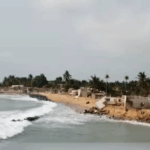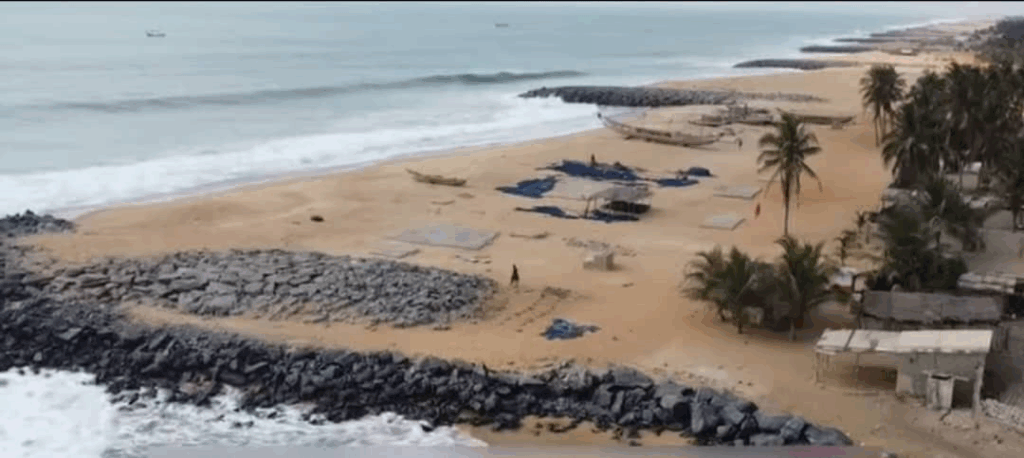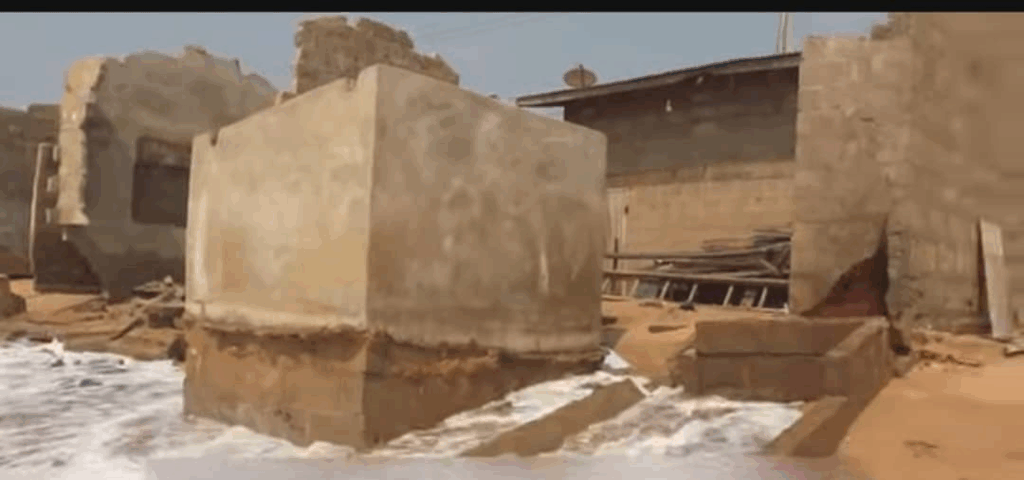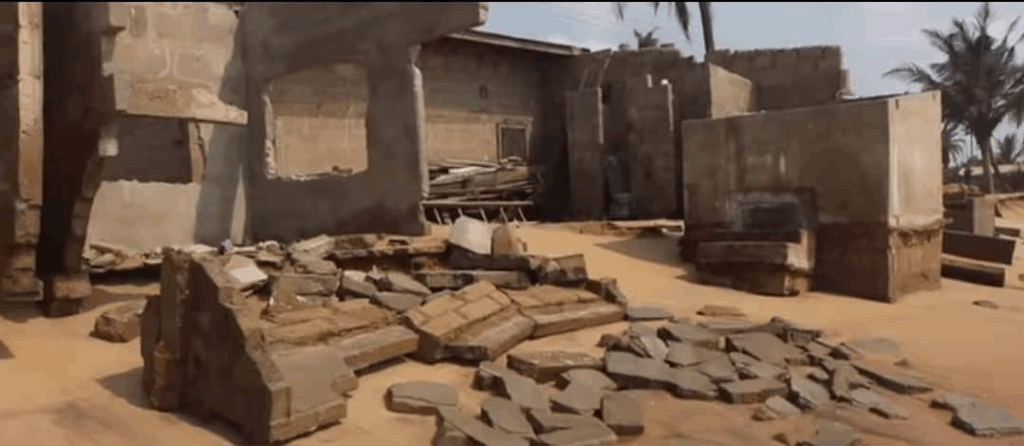
The waves arrive without mercy. They slam into what used to be bedrooms, break through kitchens that once smelled of smoked fish, and swallow the land where children once ran barefoot to school.
In Kporkporgbor and what remains of Fuveme, the ocean is not a distant horizon, it is now the neighbour that knocks down walls in the dead of night.
Once-thriving fishing villages along Ghana’s coast are becoming ghost towns. Agavedzi, Fuveme, and Salakope, Amutinu —communities that shaped the cultural spine of the Anloga and Ketu coastline, are now graveyards of memories, with the sea devouring homes, churches, cemeteries, and ancestral lands.
For 78-year-old Daavi Afi, the erasure happened in a single night. She still trembles as she recalls watching the ocean roar into her six-bedroom compound, lifting her life of 50 years and dragging it away like driftwood.

Today, she sleeps on a thin mat in her married daughter’s small hall in Dzita.
“When the sea took my house, it took my history too.”
For 12-year-old Dziedzorm, the loss is equally heartbreaking. His school—his only place of hope, collapsed into the ocean.
“I don’t go to school again,” he told JoyNews. The sea ate it.”
These are not isolated tragedies. They are the human face of a worsening climate crisis: rising sea levels, intense tidal waves, sand mining, mangrove loss, and sediment disruption from past sea defense projects have turned the coastline into a battleground where the people are losing.
Over 200 houses in Fuveme are gone. The shoreline has moved more than 100 meters inland in less than a decade. Entire families are now climate refugees, displaced into neighbouring communities with no compensation, no land, and little hope.

The sea has also salinized freshwater sources, leaving mothers walking long distances for clean water. Fishermen must now travel to other towns to launch their boats, losing precious income.
“We can’t keep burying our history,” an assembly member said. “By the time help arrives, the town is already gone.”
Beyond the wreckage is something more painful: the loss of identity. Homes built through generations are collapsing. Cemeteries have been washed away. Social networks are breaking apart as families scatter.
Every wave is a reminder of what has been taken, and what may be lost next.

Residents say the time for promises has passed. They want comprehensive coastal protection, fair compensation, sustainable relocation plans, mangrove restoration and dredging, and psychosocial support for displaced families.
If these interventions do not come quickly, more towns will disappear forever.
***
This article is written as part of a collaborative project between JoyNews, CDKN Ghana, and the Centre for Climate Change and Sustainability at the University of Ghana, with funding from the CLARE R4I Opportunities Fund.
- President Commissions 36.5 Million Dollars Hospital In The Tain District
- You Will Not Go Free For Killing An Hard Working MP – Akufo-Addo To MP’s Killer
- I Will Lead You To Victory – Ato Forson Assures NDC Supporters
Visit Our Social Media for More




